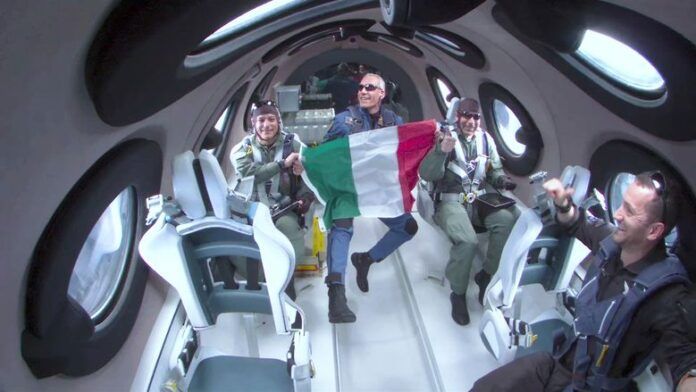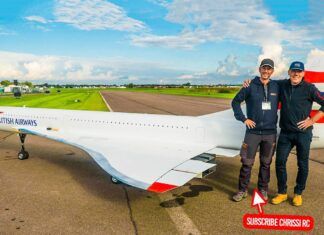Although the FAA may seem to be all over commercial space regulation, it’s about to fill a big gap that Congress mandated almost 20 years ago. SpaceRef is reporting the agency has struck the Human Space Flight Occupant Safety Rulemaking Committee for the Commercial Transportation Industry and it would appear the length of the name and the size of the committee (25 members) is a hint of what’s to come.
Its mandate seems to be nothing less than creating a FARs-type regulatory environment to govern the safety of space tourists and those operating their spacecraft, and the committee is the first step. “This Aerospace Rulemaking Committee (commonly referred to as a SpARC) purposefully engages the commercial space industry to provide consensus information, concerns, opinions, and recommendations to the Department of Transportation,” the FAA said in its announcement.
When commercial space ventures, particularly those with a space tourism emphasis, started to launch just after the turn of the century, they complained bitterly that the FAA was regulating them to death. They caught the ear of Congress with the pitch that nothing was ever going to get done unless they had a relaxed regulatory environment that would allow them to figure out the big problems.
The result was a law that effectively ordered the FAA to back off on regulating the safety of spacecraft occupants unless there is a death, serious injury or close call. The only current regulations on occupant safety require the crew and passengers to be made aware of the risks and to sign a waiver specifying their informed consent. The regulatory holiday has already been extended once to the end of 2023 and now the agency is getting ready to set the safety standards it wants to protect crew and passengers.
The committee that will make recommendations to the FAA on the new regs is made up of high-level bureaucrats from a variety of relevant government departments, academics, space company executives, representatives of industry groups and medical experts. There is also one unaffiliated individual on the 25-member committee. Mike Ryschkewitsch is the former chief engineer for NASA but he represents himself on the committee.



































The FAA wil bury this in bureaucracy and government red tape!
Just look at what the FAA did to model airplane (drone) flying.
As a retired A&P and former 23 year skydiver I understand the safety concerns and hopefully the FAA will realize that rockets and space travel are high risk activities and create FARs that reflect that reality. If they don’t then they’ll kill a nascent man-rated civilian space business in the US and foreign companies WILL fill the void. Expecting space travel to be as safe as commercial aviation is just not in the cards.
Note the uproar when an unregulated tourist submarine killed paying passengers. And THAT was in a case with no clear jurisdiction.
The FAA’s smart to try to get in the lead of this one.
Such oversight is necessary, but Job #1 for the committee is to make sure nothing they come up with conflicts, contradicts, or interdicts the FARs already in place. It’s gonna take a while.
What ever happened to the “promote”part of “Promote & Regulate”
It’s difficult to imagine where aviation (particularly general aviation) might be if the regulators had also be promoters. Some promising engines might be advancing, modern engine management systems which have dramatically improved both power and reliability in automotive applications would be in more the mainstream instead of the “experimental realm “ Why are “experimental “ avionics appreciably cheaper and more capable than their FAA blessed counterparts when both are sharing the same airspace and appear to be just as reliable. When the FAA is involved, if it’s not broken, they will fix it until it is.
A direct consequence of the Titan Submarine disaster. This will undoubtedly kill space tourism. You would think that that space tourists would automatically understand and willingly undertake the inherent risks, but apparently the “Informed” deep submersible patrons did not and were lied to about the Titan risk factors, by the company that built it.
Let’s not forget that Titan’s CEO was on board and everyone on board knew the risks of the endeavor (except, maybe, the teenager).
I would never have gone on the submersable but would gladly jump aboard a Falcon 9. Not an Amazon rocket, however. They can’t live up to their two-day delivery promise any more and their rocket looks a lot like a d…
The CEO was overconfident and ignored people who knew what they were talking about.
I saw photos of recovered parts: the two titanium end hemispheres appeared intact; so the carbon fiber central cylinder must have failed.
David Pogue, a highly respected science journalist, wrote that he heard cracking, when he descended, The construction was never built/designed/certified by Boeing/NASA as advertised.
Yes, we are talking about the FAA here, but why do so many people think that regulations will automatically “kill” an industry? If it weren’t for regulations, industry would be killing a lot more people in the name of profits. Where you run into problems is not with regulations themselves, but rather with regulators purposely trying to punish outsiders by preventing them from breaking in to an established industry (similar to what’s happening with G100UL).
Not to mention that ironically, regulations actually do more to save industry since unbr8dled industry would ultimately consume itself
Trying to avoid an incident like the submarine. I haven’t seen the same cavalier attitude with space X or Amazon but some startup could put up a rocket with game controllers with the same results as the sub.
The old aphorism that “The FARs are written in blood” is not that much of an exaggeration. There were a lot of folks who died in the early days of aviation, many of them passengers. If it weren’t for the paying customers with more money than technical knowledge, this wouldn’t be a problem at this early stage of private spacecraft development.